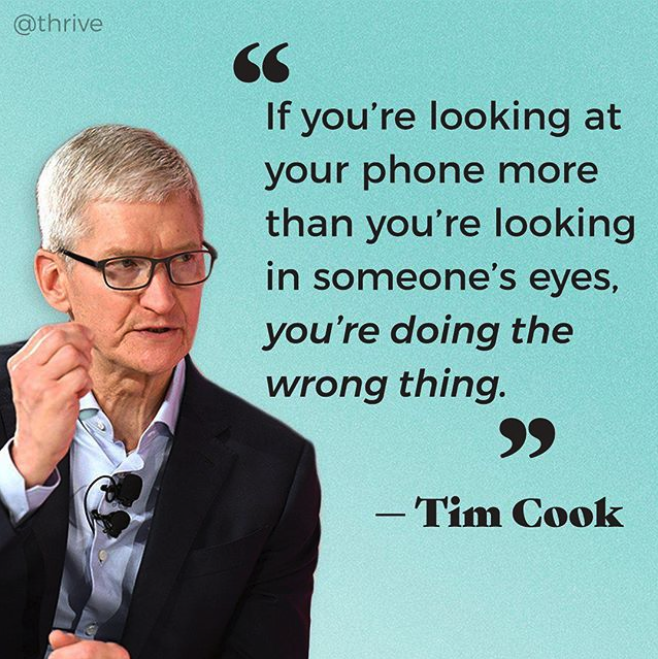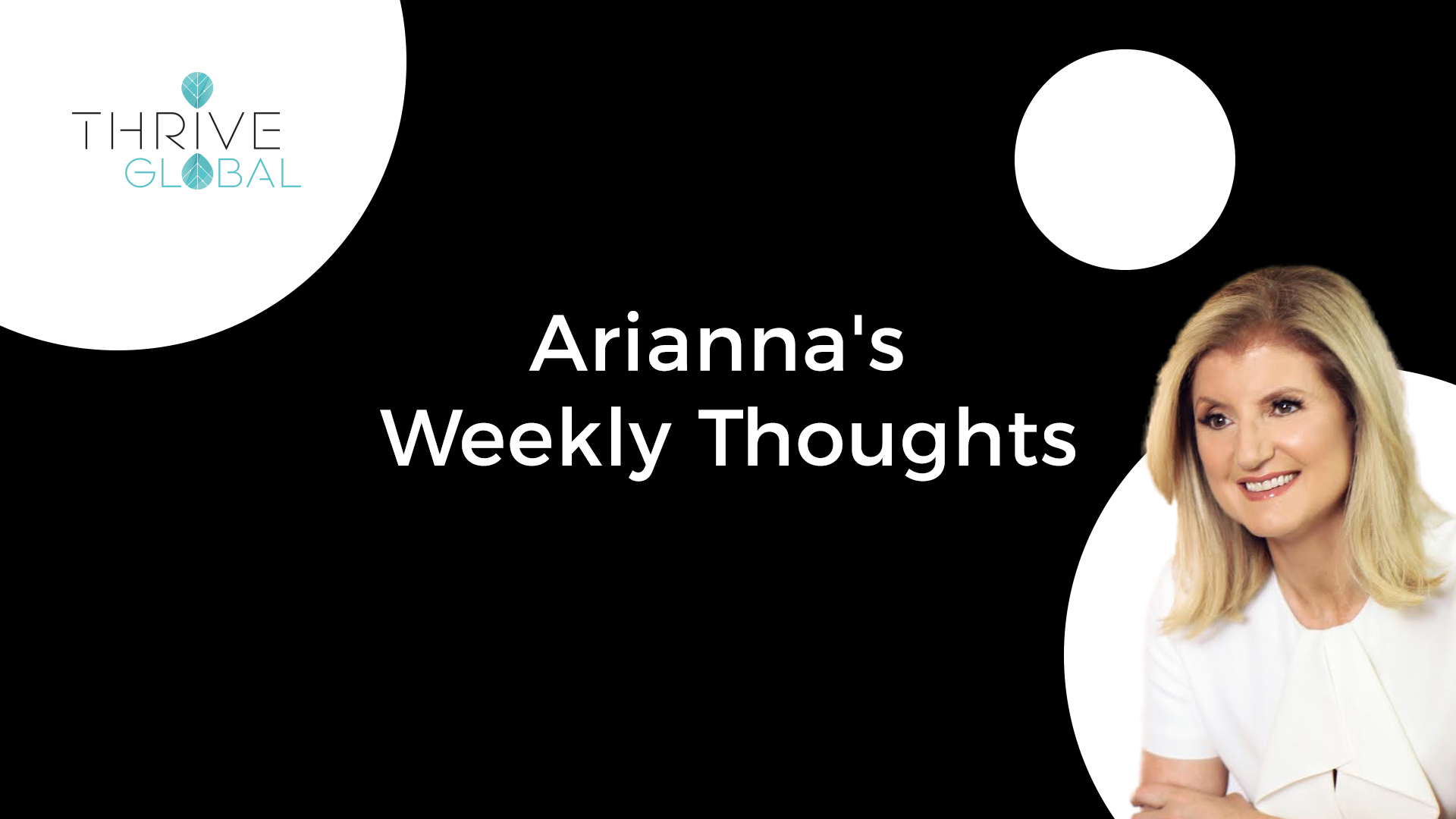In case you missed it, here’s the text of my new Weekly Thoughts newsletter. Each weekend I share my take on the week’s news stories, my favorite pieces on how we can thrive even in our stressful world, and some fun and inspiring extras. Subscribe here.
And if you haven’t already, be sure to subscribe to Thrive’s daily newsletter highlighting our favorite reads with actionable tips for enhancing your well-being, productivity, and sense of purpose.
***
A World United By Stress: A new survey by Gallup paints a grim picture of the global epidemic of stress for 2018, which continued the trend from the record highs of the previous year. The findings were particularly troubling for the U.S., with Americans’ overall “Negative Experience Index” (the combination of stress, anger and worry) being three points above the previous record.
Read More: The Calmnivore’s Dilemma: Our Increasingly Stressful Search for Calm
My Homeland: And sad news, particularly on Greek Easter, that Greece — according to the same Gallup survey — is the most stressed country in the world for the seventh year in a row. But for any of my Greek compatriots out there, I’m happy to say that our Thrive Greece TV show in partnership with the Antenna Group is on the air in Greece and has just been picked up for 10 more episodes. You can watch it on Sunday mornings on ANT1. Here’s hoping it helps inspire you to take some Microsteps for a less stressful life!
What Is…a Lot of Money? In happier news, Jeopardy champion James Holzhauer passed the $1 million mark on Tuesday in a record-efficient 14 wins. As he told The New York Times, his secret is to approach each answer as if he knows it. Or as my favorite poet Rumi put it, “live life as if everything is rigged in your favor.” And I do, though I think if I tried to translate that into a Jeopardy appearance it would be more Sean Connery than James Holzhauer.
Read More: What Gives Me Optimism: WIRED Editor-in-Chief Nick Thompson
You Don’t Say: Monday was Earth Day. Here’s everything the president had to say about climate change in his Earth Day message: nothing.
A New Cast Member Joins the Least Bingeable Reality Show: The Not-Entirely-Real Politicians of Iowa and New Hampshire: Joe Biden finally jumped into the race, making it possible that the number of Democratic candidates will exceed the number of voters. His announcement tweet had a strange punctuation quirk: can you guess…what…it…is? Let’s hope his penchant for ellipses won’t carry over…to…the…debates.
Read More: How to Manage Decision Fatigue
Twit: The president met with Twitter CEO Jack Dorsey and reportedly used most of the meeting to talk about rebuilding Western democracy. Kidding! He used it to complain about losing followers. Perhaps if the president himself went the way of some of those followers and left the platform, he might improve his mental health. As another super classy statesman, Abraham Lincoln, might have said, “America will never be destroyed from the outside. If we falter and lose our freedoms, it will be because we didn’t get enough likes.”
Read More: What Is a Techxistential Crisis and How Do You Avoid One?
***

Screens and children were in the news this week. On Wednesday, the World Health Organization announced new guidelines for family screen time, advising that children under one have no screen time, and children between 2 and 4 years old have no more than an hour per day. And to help parents out, on Tuesday Sesame Street tackled the subject with a PSA called “Device Free Dinner,” which features a tech-addicted Cookie Monster who now sadly wants phone even more than delicious cookie.
Yes, it’s great there’s more awareness about the dangers of screens and children. We now know screen use is bad for children’s mental health and connected to attention problems, social interaction difficulties, and even higher risk of suicide. But some children are more at risk than others. This is the real digital divide, but it’s being largely ignored by policy makers and educators. And it could have disastrous long-term consequences and even end up fueling inequality.
The term digital divide dates back to the ’90s and referred to unequal access to the Internet. That’s still how it’s spoken of by the FCC, whose chairman, Ajit Pai, says his top priority is “closing the digital divide and bringing the benefits of the Internet age to all Americans.” But while that divide has largely closed, a new one has opened, with studies showing that teens in lower-income families spend nearly three more hours a day on screens than their higher-income peers. Meanwhile, among those who are the most hyper-vigilant about screen time for their children are parents in Silicon Valley, some of whom are even making their nannies sign no-phone contracts.
The consequences aren’t limited to serious physical and mental health problems. We know that excessive screen time also diminishes our focus, our creativity, our decision-making skills, and our empathy levels. These are all essential job skills — and life skills — and they’re going to become even more valuable in the 21st century.
The real digital divide is about access to our most essential human qualities, not to the screens that we know diminish them. But we can’t close this divide until we recognize it. Now that we know the dangers of screen time, let’s protect all children from them, just as we would from any other threat to public health.
***
Before You Go
Study of the Week (of Earth Day): Even plants are stressed out.
True Crime Story of the Week: “Brazilian police took a parrot into custody after it tipped off alleged drug dealers to a police raid”
What To Watch: The Redemption Project With Van Jones — a compelling 8-part CNN series on the restorative justice process, which premieres this Sunday, April 28th.
Neologism of the Week (new words, terms or phrases that define our time): “Surface Acting” — having to fake positive emotions at work, which, in a fascinating study, was found to be associated with increased alcohol consumption. This is my favorite neologism right now — send yours here!
Trend Piece of the Week: “The Instagram Aesthetic is Over” — bright walls, artfully arranged lattes and Millennial pink just aren’t resonating anymore.
Selfie of the Week: It isn’t just humans who get taken out of the moment by selfies.

Rethink, Rename: the Phone
Had some great responses to my call to rename the phone last weekend (since the phone function is so seldom used anymore). Some of my favorites include:
- Disconnection device
- MAD (mindless aberration device)
- Awarenessbreaker
- Electronic leash
- The lonely box
Subscribe here for my Weekly Thoughts Newsletter, where you’ll find my take on the week’s news, my favorite pieces on how we can thrive even in our stressful world, and some fun and inspiring extras.


